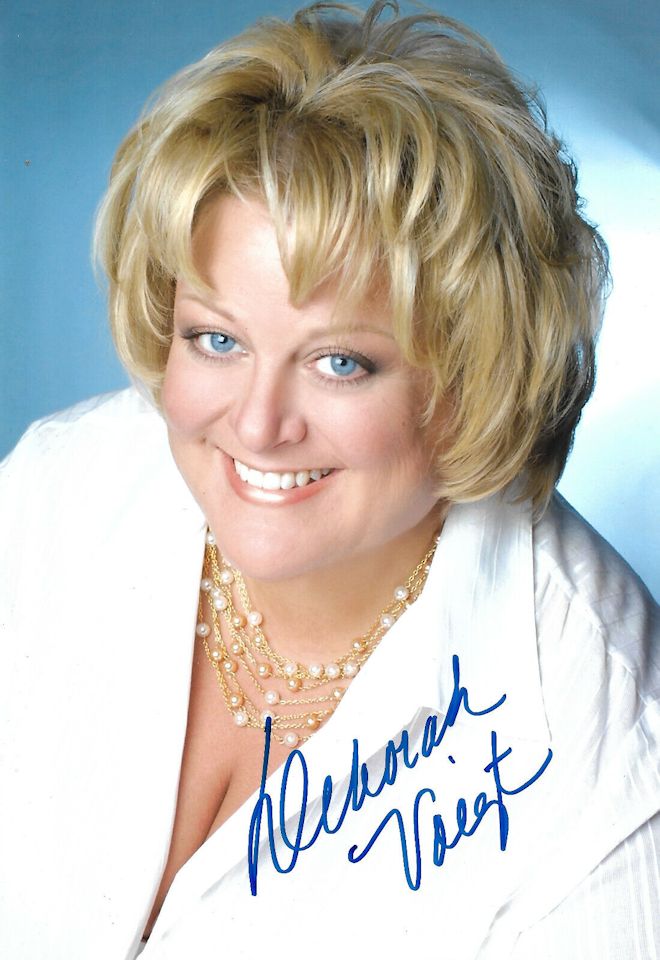

| Through her performances and television appearances,
Deborah Voigt is known for the singular power and beauty of her voice,
and captivating stage presence. Having made her name as a leading dramatic
soprano, she is internationally lauded for her performances in the operas
of Wagner, Strauss, and more, as well as for her recitals and accounts
of Broadway standards and popular songs. In addition to boasting an extensive
discography, she has frequently appeared as both performer and host in
the Metropolitan Opera’s Live in HD series, which is broadcast to movie
theaters around the world. Voigt has given definitive performances of iconic roles in German opera, from Richard Strauss’s Ariadne, Salome, Kaiserin (Die Frau ohne Schatten), and Chrysothemis (Elektra) to Wagner’s Sieglinde (Die Walküre), Elisabeth (Tannhäuser), and Isolde. She is also noted for starring roles in Strauss’s Egyptian Helen, Der Rosenkavalier, and Friedenstag; Wagner’s Lohengrin; Berlioz’s Les Troyens, and Berg’s Wozzeck; and for her portrayals of such popular Italian roles as Tosca, Aida, Amelia (Un ballo in maschera), Leonora (La forza del destino), La Gioconda, and Minnie (La fanciulla del West). A highly gifted teacher who enjoys working with young artists, as Artistic Advisor to Florida’s Vero Beach Opera, she is involved in repertoire planning, casting, and production, as well as chairing the Deborah Voigt/Vero Beach Opera Foundation’s annual International Vocal Competition. Voigt’s extensive discography includes two popular and critically successful solo recordings for EMI Classics: All My Heart: Deborah Voigt Sings American Songs with pianist Brian Zeger, named one of the “Best of the Year” by Opera News magazine, and the Billboard top-five bestseller Obsessions, which presents scenes and arias from operas by Wagner and Strauss. Her recording of Strauss’s Egyptian Helen was another Billboard bestseller and was again named one of the best of the year by Opera News. Deutsche Grammophon released a live recording of Voigt’s headlining role debut in the 2003 Vienna State Opera Tristan und Isolde, as well as a Blu-ray DVD set of her starring role as Brünnhilde in Robert Lepage’s visionary Ring cycle at the Met, which won the Grammy Award for Best Opera Recording of 2013.Voigt studied at California State University at Fullerton. She was a member of San Francisco Opera’s Merola Program and won both the Gold Medal in Moscow’s International Tchaikovsky Competition and First Prize at Philadelphia’s Luciano Pavarotti International Voice Competition. A Chevalier dans l’Ordre des Arts et des Lettres, she was Musical America’s Vocalist of the Year 2003, won a 2007 Opera News Award for distinguished achievement, and has received Honorary Doctorates from Smith College (2015) and the University of South Carolina (2009). == Excerpted from Promethean Artists website
|
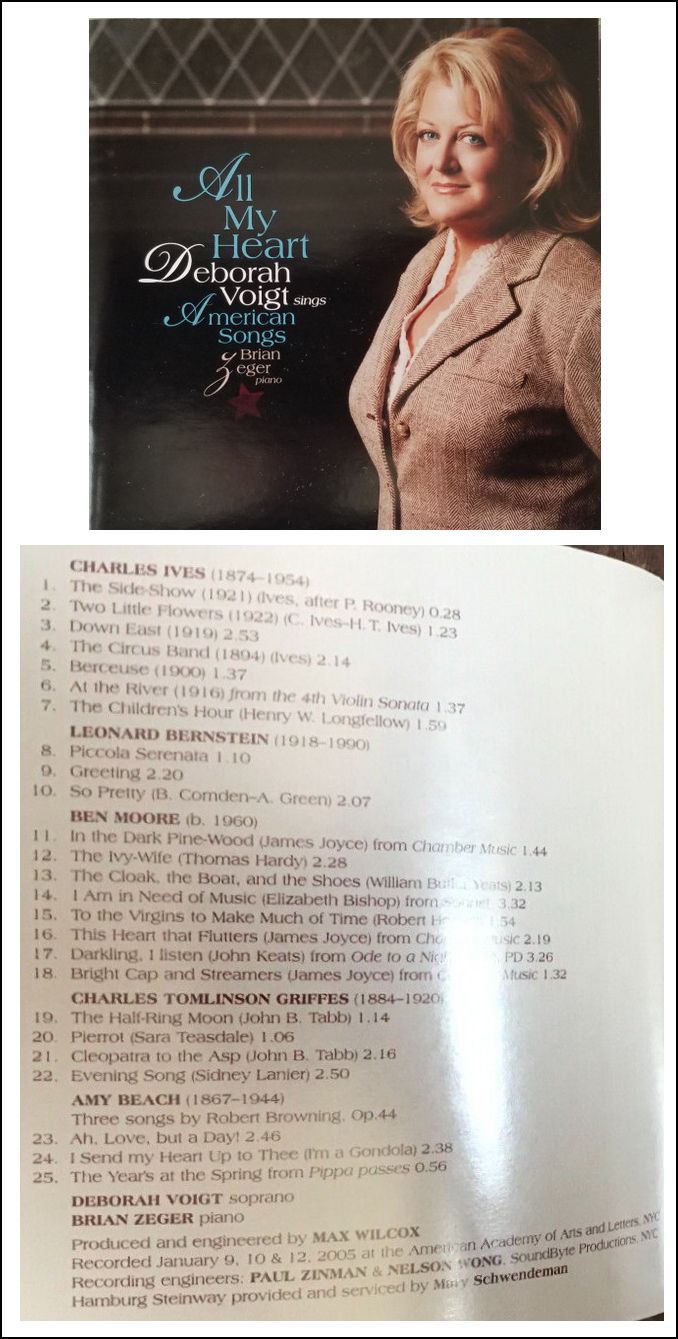
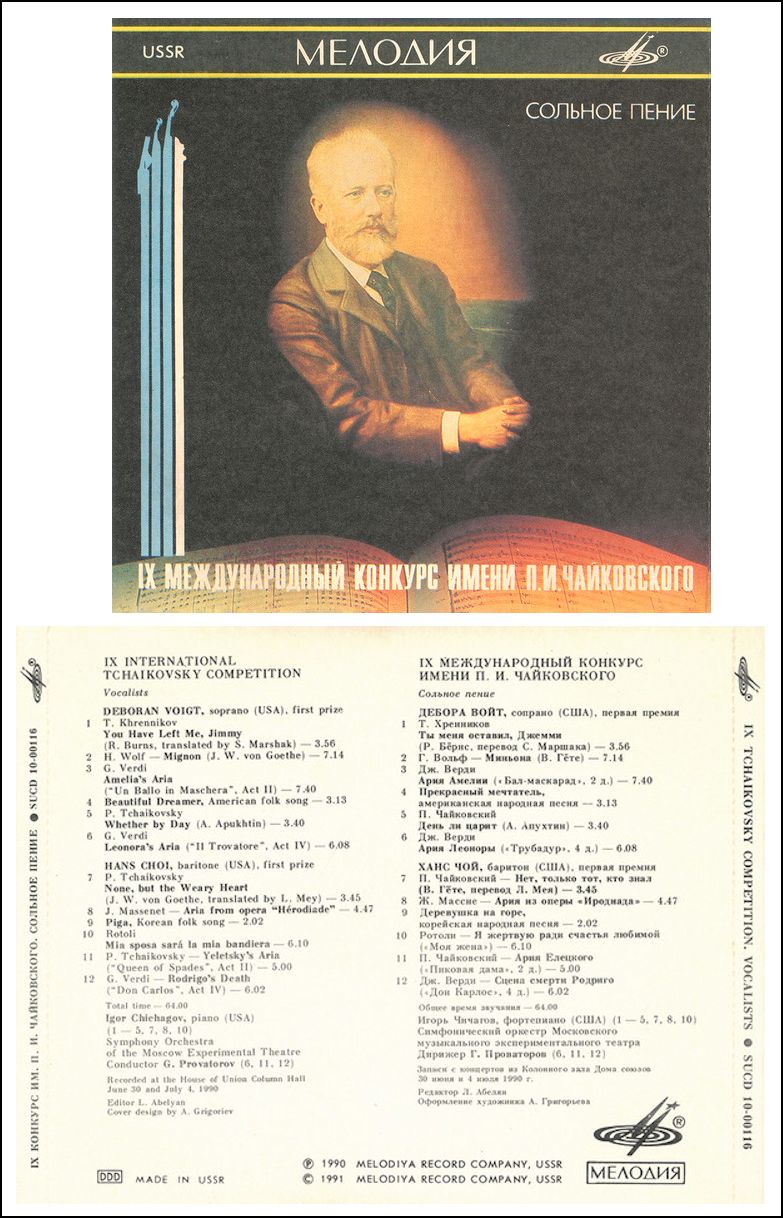
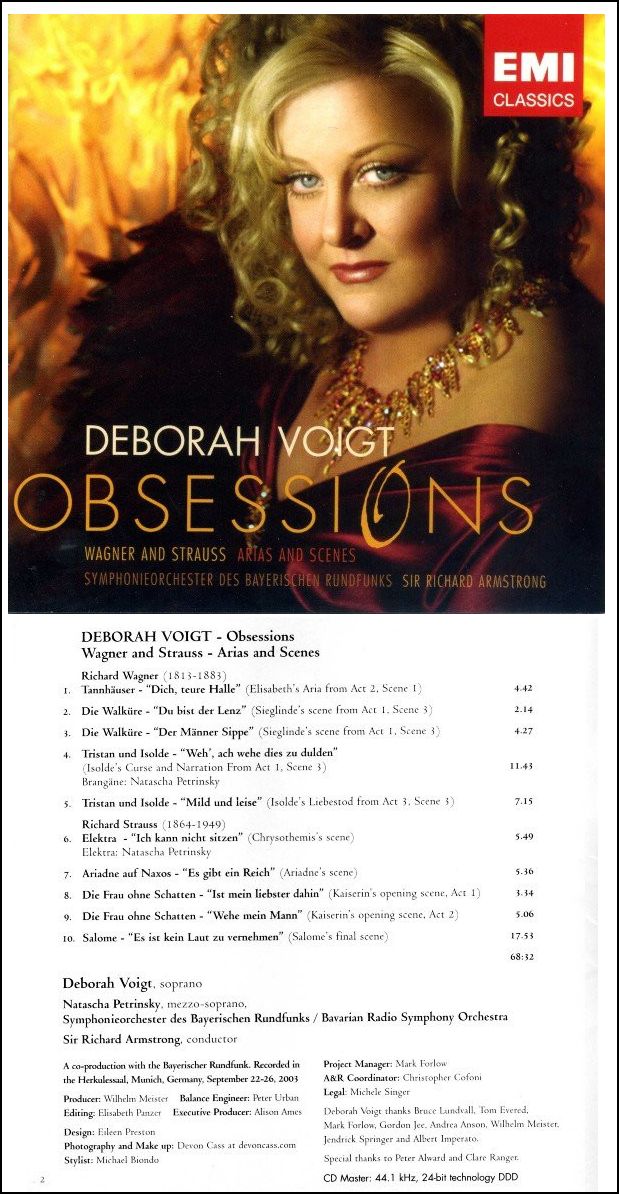
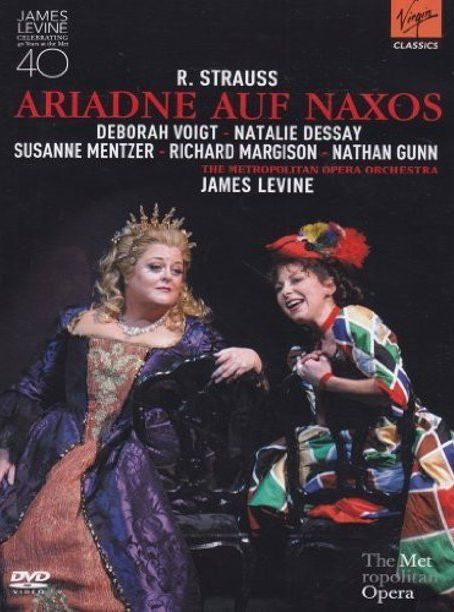
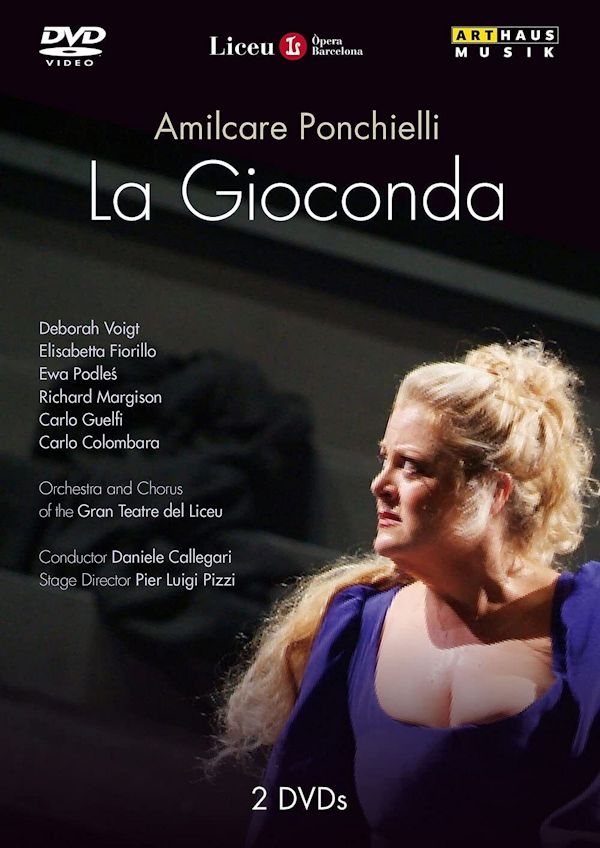
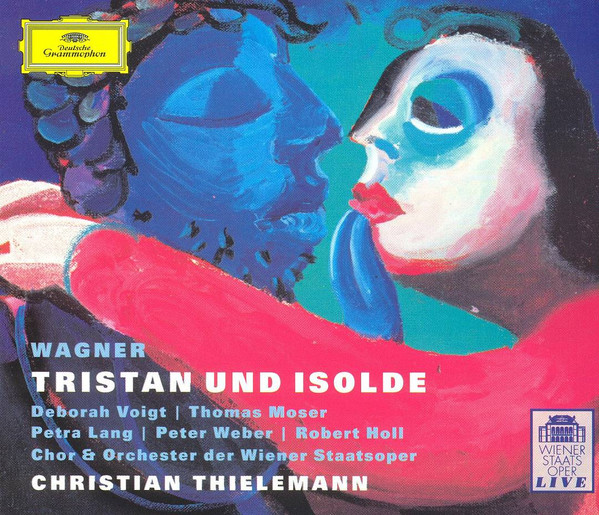
| At Lyric Opera of Chicago, Deborah Voigt
would sing Amelia in Un Ballo in Maschera (1992-93) with (among
others) Fiorenza
Cossotto and Donnie
Ray Albert, conducted by Richard Buckley
and directed by Sonja Frisell
in the John Conklin
production; the title role in Ariadne auf Naxos (1998-99) with
Susan Graham, Jon
Villars, Laura Aikin,
and David Cangelosi,
conducted by Robert Spano
and directed by John
Cox; Sieglinde in Die Walküre (2002-03) with Jane Eaglen,
James Morris, Marjana Lipovšek, and Thomas Studebaker, conducted by Sir Andrew Davis, and staged
by August Everding;
the title role in Salome (2006-07) with Alan Held, Judith Forst,
and Kim Begley, conducted by Davis and staged by Francesca Zambello; the
Empress in Frau ohne schatten (2007-08) with Robert Dean Smith,
Christine Brewer, Franz Hawlata,
again led by Davis; Isolde in Tristan und Isolde with Clifton Forbis,
Petra Lang, Greer Grimsley, Stephen Milling, conducted by Davis in the
David Hockney production; the title role in Tosca which would open
the 2009-10 season, with Vladimir Galouzine
and James Morris, again led by Davis in the Zeffirelli production; and finally
Minnie in Fanciulla del West (2010-11) with Marcello Giordani, and
Marco Vratogna, led once again by Davis in the Harold Prince production. With the Chicago Symphony, Voigt would sing the Symphony #9 of Beethoven at the Royal Albert Hall, London, led by Sir Georg Solti in September, 1996. Then, back at Orchestra Hall, she would appear in the concert version of The Trojans, Part I, (February, 2001) conducted by Zubin Mehta; and then three times led by Daniel Barenboim, including the Verdi Requiem (April, 2001), the Symphony #9 of Beethoven (February, 2004), and Erwartung (Schoenberg) (October, 2004). At the Ravinia Festival, Voigt would sing Wagner and Strauss in 2000 and 2011, as well as the Symphony #8 of Mahler in 2004 all led by Christoph Eschenbach, and Act One of Die Walküre conducted by James Conlon also in 2004. Finally, in 2014, Voigt would sing a concert of lighter music by Berlin, Kern, Gershwin, etc., led by Ted Sperling. |
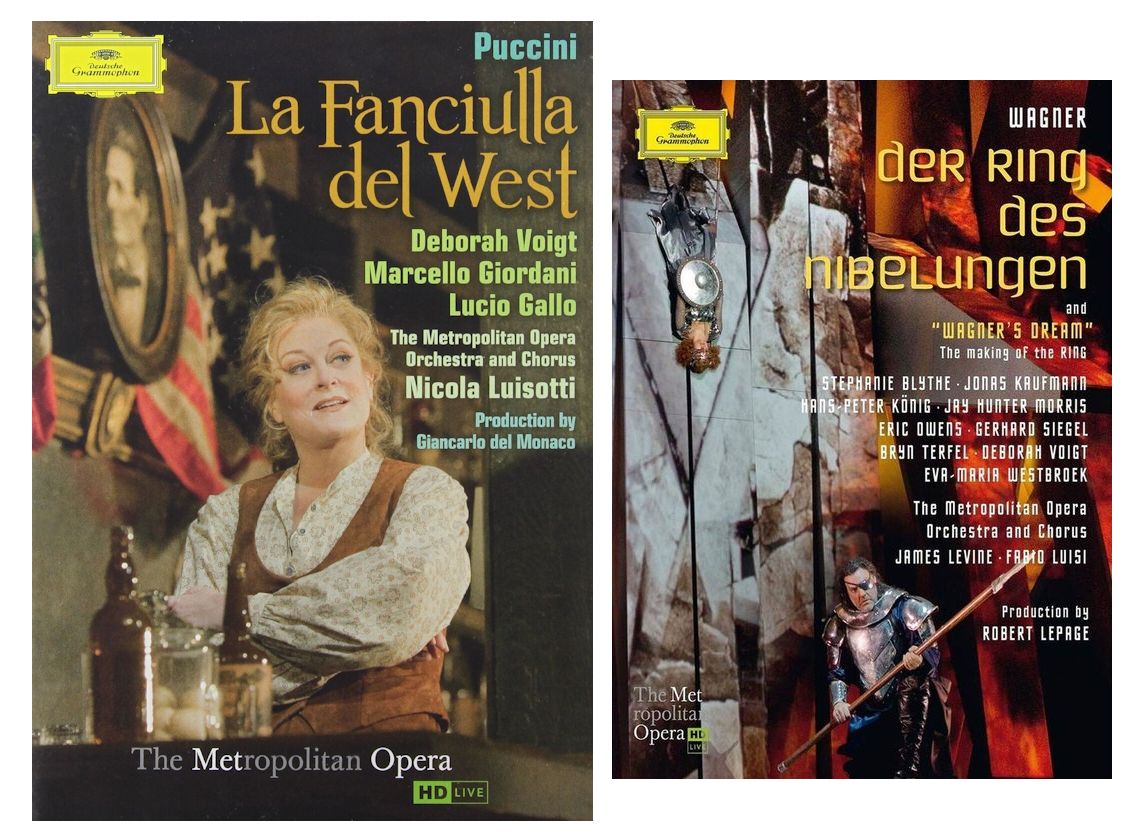
© 1990 Bruce Duffie
This conversation was recorded in Chicago on July 19, 1990. Portions were broadcast on WNIB in 1995 and 2000. This transcription was made in 2022, and posted on this website at that time. My thanks to British soprano Una Barry for her help in preparing this website presentation.
To see a full list (with links) of interviews which have been transcribed and posted on this website, click here. To read my thoughts on editing these interviews for print, as well as a few other interesting observations, click here.
Award - winning broadcaster Bruce Duffie was with WNIB, Classical 97 in Chicago from 1975 until its final moment as a classical station in February of 2001. His interviews have also appeared in various magazines and journals since 1980, and he now continues his broadcast series on WNUR-FM, as well as on Contemporary Classical Internet Radio.
You are invited to visit his website for more information about his work, including selected transcripts of other interviews, plus a full list of his guests. He would also like to call your attention to the photos and information about his grandfather, who was a pioneer in the automotive field more than a century ago. You may also send him E-Mail with comments, questions and suggestions.